Media library
Documentary, graphic and/or audiovisual knowledge objects are offered here, offering information on various sectors and topics. Use the keyword search or search filters to access current audiovisual and documentary knowledge objects useful for your implementation.
If you have any questions or suggestions, please contact us here.
Phytosanitary alert and information network, field protocol for crop monitoring: winter cereals
Field manual for estimating the risk of damage caused by pests and diseases in winter cereal crops.
DIH Datalife Hub
Channel with demonstration videos of the application of new technologies (Artificial Intelligence, High Performance Computing, Internet of Things) from the DIH Datalife Hub
Dossier of supra-autonomous innovation projects
Inventory of innovative projects implemented by supra-regional operational groups of the European Innovation Partnership for agricultural productivity and sustainability of the National Rural Development Programme (PNDR) 2014-2022, submeasure 16.2.
Grups operatius a Catalunya. Call 2018 (Catalan)
The Technical Dossier no. 123: “Grups operatius a Catalunya. Call 2018” is dedicated to the Groups Operatius developed within the framework of the CAP Strategic Plan (PEPAC 2023-2027), and includes the Agricultural Knowledge and Innovation Systems, also linked to AKIS (Agricultural Knowledge and Innovation System).
Operational Groups in Catalonia. Call for 2018
"Technical Dossier No. 123: “Operational groups in Catalonia. Call 2018” is dedicated to the Operational Groups developed within the framework of the CAP Strategic Plan (PEPAC 2023-2027), and taking into account the Agricultural Knowledge and Innovation Systems, also known as AKIS (Agricultural Knowledge and Innovation System).
Report on Spanish supra-autonomous EIP-AGRI projects 2017-2022
The report summarizes the first funding period (2014-2022) of the European Innovation Partnership for Agricultural Productivity and Sustainability (EIP-Agri) operational groups, implemented at supra-autonomous level in Spain.

Agrifocus: Water management in the digital age
Monograph on water management.
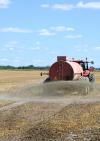
UNE 142500:2017 standard
Standard for inputs that can be used in organic plant production: fertilizers, amendments and growing substrates.
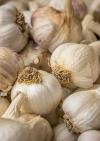
Agronomic generation of new SUPERFOODS bio-enriched on farm. Application of biotechnological solution microalgae-microorganism consortia (SUPERFOOD BIOTECH)
Proposal to increase mineralization, promote soil-plant microbiome symbiosis and enrich agricultural soils with organic matter in a sustainable, continuous and complete way with all the necessary nutrients.
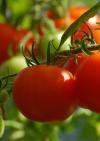
Predicting the optimal harvesting time through integrated thermal crop management (RECOLECTA PROJECT)
Development of an intelligent and autonomous agricultural management system that determines the optimal harvest date for each crop, improving the competitiveness of primary producers in the food chain.
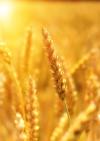
Application of soil health and quality indicators for sustainable and efficient management of sunflowers in Aragon, Castile Leon, Castile La Mancha, Extremadura and Andalusia (SALUDGIRASOL)
To make sunflower cultivation profitable from a productive, sustainable and ecosystem-based perspective. A set of parameters is provided that can identify the quality and health of soils that support sunflower cultivation.
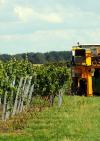
Valorization of traditional materials for the vinification of quality wines (GOVALMAVIN)
Objective development and enhancement of new, distinctive Spanish wines through alternative production and ageing methods using traditional clay jars and newly designed technologies.
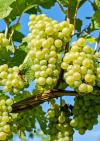
Optimization of the use of phytosanitary products in viticulture based on vigor maps (GOPHYTOVID)
To demonstratively and realistically minimise the use of chemical pesticides in viticulture and evaluate the practical application of bioprotective alternatives in Spanish vineyards.
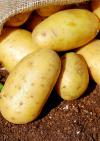
Reducing the energy cost of irrigation in sugar beet through energy efficiency and reduced water consumption (EFFIREM+)
Promote among farmers the adoption of innovative measures to save on energy bills for irrigation and water consumption to ensure the competitiveness and sustainability of the sugar beet sector after its disappearance.






